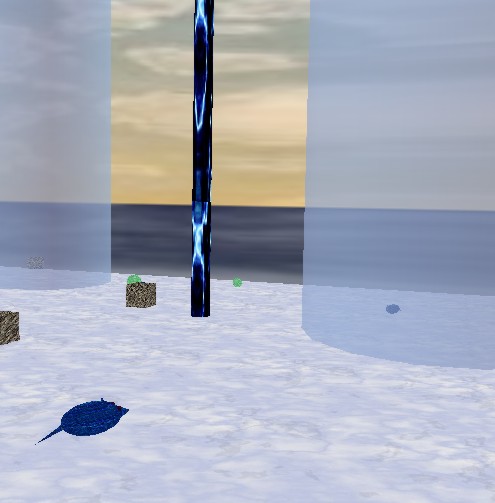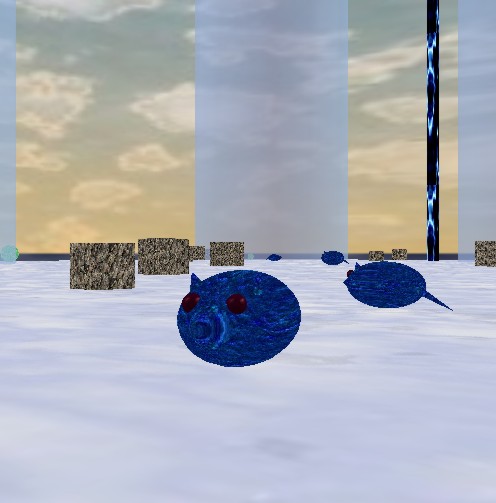


Knowledge Emerging from Behaviour
As an approach to study the evolution of cognition, and the relationships between behaviour and cognition, we have developed a virtual laboratory with two aims: First, to implement and to test our model of recursive concept development in virtual animats as they survive in a simple environment. Second, to contrast characteristic models of different paradigms of cognition (rule-based systems, behaviour-based systems, concept-based systems, nerual networks, Braiteberg architectures) giving us a philosophical aid to argue that different paradigms study different aspects of cognition, but in theory they are equivalent to any desired level of detail. Therefore, no architecture or paradigm is "better" than other outside a specific context, and we should try to study cognition from as many perspectives as possible, in order to have a broader understanding of it.
Download
KEBA 3.01 (27-july-2003) (source code included, Java, Java3D).
Readme.
If you
are interested in the source code, you might also want its
documentation. Implementation details can be
found on my MSc thesis Appendixes
Gershenson, C. (2002d).
A Comparison of Different Cognitive Paradigms
Using Simple Animats in a Virtual Laboratory,
with Implications to the Notion of Cognition.
Unpublished MSc Thesis.
University of Sussex.
[html]
[pdf]
Abstract:
In this thesis I present a virtual laboratory which implements five different
models for controlling animats: a rule-based system, a behaviour-based system, a
concept-based system, a neural network, and a Braitenberg architecture. Through
different experiments, I compare the performance of the models and conclude that
there is no “best” model, since different models are better for different things in
different contexts. The models I chose, although quite simple, represent different
approaches for studying cognition. Using the results as an empirical philosophical
aid, I note that there is no “best” approach for studying cognition, since different
approaches have all advantages and disadvantages, because they study different
aspects of cognition from different contexts. This has implications for current
debates on “proper” approaches for cognition: all approaches are a bit proper, but
none will be “proper enough”. I draw remarks on the notion of cognition abstracting
from all the approaches used to study it, and propose a simple classification for
different types of cognition.
Gershenson, C. (2002c).
Behaviour-based Knowledge Systems: An Epigenetic Path from
Behaviour to Knowledge.
Proceedings of the 2nd Workshop on Epigenetic Robotics.
Edinburgh.
Abstract:
In this paper we expose the theoretical
background underlying our current research. This
consists in the development of behaviour-based
knowledge systems, for closing the gaps between
behaviour-based and knowledge-based systems,
and also between the understandings of the
phenomena they model. We expose the
requirements and stages for developing
behaviour-based knowledge systems and discuss
their limits. We believe that these are necessary
conditions for the development of higher order
cognitive capacities, in artificial and natural
cognitive systems.
Implementation (in "progress" (i.e. stand-by)): "Adaptive Grounding of
Koncepts...".









